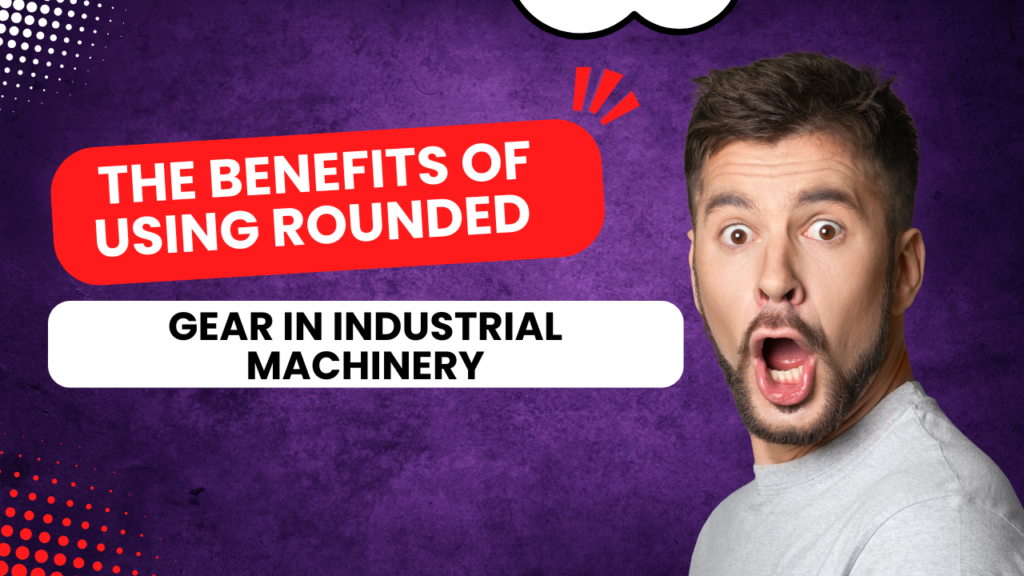Rounded gears are transforming industrial machinery with their efficiency, durability, and smooth performance. Unlike traditional gears, rounded gears reduce friction, noise, and vibration while extending the lifespan of machines. They also help industries cut down on energy costs, reduce maintenance downtime, and improve overall safety. From automotive and aerospace to robotics and manufacturing plants, rounded gears are becoming the preferred choice for modern industries. This article explores the key benefits, applications, cost-effectiveness, and future innovations of rounded gears, helping businesses understand why investing in this technology is a smart and sustainable move for long-term success.
Table of Contents
ToggleIntroduction
When it comes to industrial machinery, gears are the unsung heroes that keep everything moving smoothly. From powering massive conveyor belts in factories to ensuring precision in robotics, gears play a crucial role. But not all gears are created equal. In recent years, rounded gears have gained massive attention for their efficiency, durability, and overall performance benefits.
So, why exactly are industries shifting from conventional gears to rounded ones? Let’s dive deep into the benefits of using rounded gear in industrial machinery and discover why they’re becoming the new standard.
What Are Rounded Gears?
Rounded gears are specially designed gears where the tooth edges are smoother and curved, unlike the sharp, angular design of traditional gears.
Difference Between Rounded and Traditional Gears
- Traditional gears have pointed edges that can cause higher friction, wear, and noise.
- Rounded gears distribute force more evenly, resulting in smoother motion and less wear on machinery parts.
Think of it like walking barefoot on sharp rocks versus walking on smooth pebbles—the smoother design simply feels and works better.
- Quick wear and tear
- Overheating due to friction
- Frequent maintenance needs
- Excessive noise and vibration
Rounded gears solve most of these issues, making them a smarter choice for industries that value efficiency and reliability.
Key Benefits of Rounded Gears
Improved Efficiency
Round gears transfer power more smoothly because they lower resistance. This improves machine efficiency and allows industries to achieve higher output with the same energy.
Reduced Friction and Wear
Traditional gears grind against each other harshly. Rounded gears, on the other hand, glide more naturally. Less friction means less heat and longer-lasting machinery.
Longer Lifespan of Machinery
The longevity of the entire machine, not just the gears, is immediately increased by less wear and better motion.
Enhanced Safety
Smooth gear transitions reduce the chances of sudden mechanical failures, making the workplace safer for operators.
For large factories, even a 5–10% improvement in energy efficiency can save millions annually.
Noise and Vibration Reduction
Traditional gears often create annoying vibrations and loud mechanical noises. Rounded gears solve this by ensuring quiet, stable, and vibration-free operations.
- This improves worker comfort.
- It also minimizes long-term damage caused by constant vibration.
Imagine the difference between driving an old noisy tractor versus a smooth modern car—that’s what rounded gears bring to industrial machinery.
Maintenance and Downtime Benefits
Downtime is every manufacturer’s nightmare. Because rounded gears require less upkeep, there are fewer disruptions.
- They don’t wear out as quickly.
- Fewer breakdowns equal better productivity.
This not only saves money but also boosts customer satisfaction since deadlines are met without unexpected delays.
Applications of Rounded Gears in Industries
Automotive Industry
Cars and trucks benefit from smoother gear transitions, better fuel efficiency, and quieter rides.
Manufacturing Plants
Machines run longer with fewer breakdowns, which is crucial in high-volume production.
Robotics and Automation
Rounded gears ensure precise, smooth, and accurate movements—essential for robots and automated arms.
Aerospace Engineering
Aircraft engines and systems need durable, reliable gears. Rounded gears help reduce risk while improving efficiency.
Cost vs. Value of Rounded Gears
It’s true—rounded gears may cost more upfront than traditional ones. But here’s the catch:
- Lower energy bills
- Reduced maintenance costs
- Longer machine lifespan
- Better performance
When you add these benefits up, rounded gears offer higher ROI (Return on Investment) in the long run.
Rounded Gear Technology Innovations
The future is even more exciting. Modern engineering has introduced:
- 3D-printed rounded gears for custom designs
- Smart gears with embedded sensors for monitoring performance
- Eco-friendly materials for sustainable gear production
These innovations make rounded gears not just a current trend but a long-term solution.
Case Studies and Real-World Examples
- Automotive companies reported a 20% drop in fuel consumption after switching to rounded gear designs.
- Robotics firms saw smoother, error-free operations.
- Aerospace projects increased safety margins due to reliable gear performance.
Common Misconceptions About Rounded Gears
- Myth 1: They are too expensive.
Fact: They save more money in the long term. - Myth 2: They only work in advanced machinery.
Fact: Rounded gears can be applied to almost all types of machinery.
Myth 3: They don’t make a big difference.
Fact: Studies show rounded gears drastically reduce wear and increase efficiency.
How to Choose the Right Rounded Gear for Your Machinery
- Understand your machine’s requirements (load, speed, torque).
- Consult experts or suppliers for compatibility.
- Invest in quality materials to ensure durability.
Choosing the wrong gear is like putting bicycle tires on a truck—it just won’t work properly.
The Future of Rounded Gears in Industrial Machinery
Rounded gears are the future of industrial design. As industries push for sustainability, efficiency, and safety, these gears will become standard. Expect to see more industries adopting them, backed by smart technology and AI-driven monitoring.
Conclusion
Rounded gears are more than just a design improvement—they are a game-changer for industrial machinery. From reducing noise and energy consumption to improving efficiency and safety, the benefits are undeniable. Yes, they may cost more initially, but the long-term savings and performance gains make them worth every penny.
If industries want to stay competitive in the future, rounded gears are the way forward.
Read Also:
Unlocking Wellness: How Your Super DE is Transforming the Superfood Industry
Tiqets: Your Ultimate Ticketing Platform for Seamless Travel and Attraction Bookings
Weight Watchers Online: Achieve Your Health Goals with Personalized Weight Loss Programs
TicketNetwork: Your Go-To Marketplace for Concert, Sports, and Event Tickets
The Rise of Kontist: Smart Banking Solutions for Modern Professionals
Why Novakid Global ARABIC Is a Game-Changer in Digital Language Education
Frequently asked questions
Rounded gears reduce friction, improve efficiency, and last longer than traditional gears.
Yes, initially—but the long-term savings in energy and maintenance make them more cost-effective.
Absolutely. From cars to factories to airplanes, rounded gears fit into most industrial applications.
Yes, their smoother design minimizes vibrations and mechanical noise.
They require less energy to operate, which reduces overall electricity or fuel costs.















